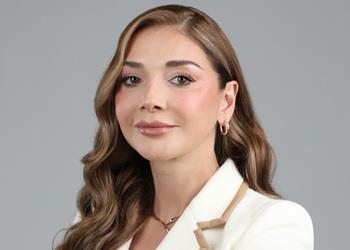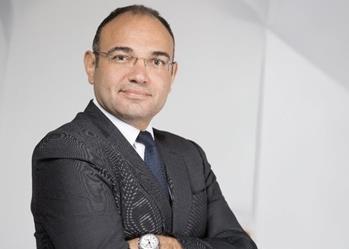
Economic growth in Iraq’s Kurdish north is strong, but tensions with Baghdad are also increasing
As MEED went to press, the Kurdistan Regional Government (KRG) was preparing to announce a major new oil deal in the Kurdish region of Iraq. The deal is bound to further escalate tensions between Irbil and Baghdad over responsibility for Iraq’s northern oil fields.
“Kurdistan is at the heart of fundamental changes and upheavals across the region”
Barham Salih, KRG Prime Minister
The KRG has sought to attract international companies to develop the oil fields of northern Iraq by offering production-sharing contracts. So far, it has awarded two contracts and issued several production licences. Baghdad says these contacts are illegal and that Irbil has no authority to make the awards.
It prefers to offer centralised service contracts, which pay companies a fee for the oil they produce. The KRG argues that Baghdad’s policy deters foreign investors, not least because it does not provide sufficient compensation and incentives to encourage growth in a risky and unstable climate.
Conflicting views
Speaking exclusively to MEED in Irbil, KRG Prime Minister Barham Salih rejected the claims made in early October by Deputy Prime Minister for Energy Hussein al-Shahristani that the KRG oil contracts are illegal and need to be rewritten. He insisted that it was Baghdad that was pursuing a wrong policy.
“Al-Shahristani should not run away from the total and utter failure of his oil policy,” says Salih. “Major international companies are becoming interested in the development of Kurdistan’s oil reserves and this is testament to the fact that we are on the right path, that we are [pursuing] an economically and legally viable way of developing our oil reserves.”
The KRG began exporting about 100,000 barrels of oil a day in February through the Iraq-Turkey pipeline. The KRG aims to produce about 1 million barrels of oil a day by 2015. But Iraq’s new hydrocarbons law could restrict this.
The Kurds have rejected the law and say they will continue to do so unless a concession is made. “The Kurds object [to] the new draft [law] because it restricts their capacity to push through their own contracts,” says Rejna Alaaldin, senior associate at Kurdistan Legal Services based in Irbil. “The revised law stipulates that contracts signed by the KRG are invalid unless they are specifically approved by the oil and gas council in Baghdad with a two-thirds majority. It also gives the oil ministry in Baghdad a stronger say in arranging licensing rounds.”
“In accordance with the Iraqi constitution, the revenues from oil production in the Kurdistan region ends up in the Iraqi treasury for the welfare of the Iraqi people,” says Salih.
“He [Al-Shahristani] should look at the big
picture and celebrate the success that we have achieved in Kurdistan by way of producing oil and exporting it through the Iraq-Turkey pipeline.”
According to Salih, Kurdish oil exports have contributed significant income to the Iraqi treasury. “We will not be sidetracked by
Al-Shahristani’s outburst. He should be more focused on solving the many problems encountered by Iraq’s oil industry and we are here to help him should he need it,” says Salih.
“Iraqi oil production from 2003-08 remained at low levels in the context of Iraq’s potential and the international attention paid to the country’s oil reserves,” he says.
The KRG’s determination to follow its own course challenges the core of Baghdad’s centralised government approach. And with Kurdish northern region leaping ahead of the rest of the country in terms of development, the contrast is beginning to infuriate Baghdad.
Coalition support
On 16 October, a Kurdish delegation, headed by Salih, travelled to Baghdad to try to diffuse tensions following a recent request by Baghdad that Kurdish flags be removed from government buildings.
But the Kurdish politicians know they are in a strong negotiating position. The Kurdish parties acted as kingmakers in the formation of the government after the March 2010 elections, forcing Prime Minister Nouri al-Maliki to compromise his mandate to win the support of the Kurds and retain his place in power.
The Irbil Agreement promised to fulfill 19 Kurdish demands related to the energy sector, revenue sharing, disputed territories and the payment of salaries to KRG security forces. For the first time in their history, the Kurds have influence over the policies of the entire country and instead of fighting for political independence, they have worked to become part of the establishment. But they have also found their own economic independence.
“Kurdistan is at the heart of fundamental changes and upheavals across the region. It is the ultimate transition in the Middle East,” says Salih.
Iraq’s Kurds have enjoyed self-rule since the establishment of a no-fly zone in 1991. With the 2003 US-led invasion, many saw the Kurds as a destabilising factor in creating a unified Iraq. “Many predicted Kurdistan would be the centre of chaos, the problematic issue for the entire region,” says Salih. “Things have transpired entirely differently. Kurdistan enjoys good relations with Turkey. We enjoy a reasonably good relationship with the Iranians and Kurdistan has emerged to be the most stable part of Iraq.”
The region has witnessed some fundamental economic changes over the past eight years. “The potential for Kurdistan is huge. We are developing our infrastructure whether it is energy, roads, or schools. Kurdistan today is more democratic than it was five years ago. The process of building a functional democracy is going to take time, but Kurdistan in many ways is leading the way,” says Salih.
The KRG has been held up as an example of a stable democracy in the Middle East and has been noted for its open policy to persecuted minorities. “This is a society in transition, our politics is in transition,” says Salih.
But this transition has had its bumps along the way. The political elite continue to enjoy unrestricted power. Various politicians have been linked with corruption, which has caused much discontent among the people and provided a powerful tool for the government’s opposition.
Earlier this year, frustrated Kurds took to the streets in the city of Suleimaniyah, the stronghold of the main opposition party Gorran, to demand reform and an end to the corruption that many feel has become the backbone of all deals struck in the region. The government was criticised after nine civilians were killed in clashes with police forces, which lead to calls for more protests in other cities.
“One issue was restoring confidence in government, [so] we have embarked on initiatives on transparency, good governance, reforms and equal opportunity,” says Salih. “I cannot claim we have delivered on every single aspect of these things, but we have deliberately moved in the right direction. We need to do better and we can do better and our constituents demand us to do better.”
While the protests did not spread, they did instill a new sense of confidence into the people. “The two major parties can no longer take their people for granted, they have to fight for every vote,” says Salih.
Another source of tension in the KRG’s relationship with Baghdad is the oil-rich city of Kirkuk, with both Kurds and Arabs seeking claim over it.
“On the eve of the war, many predicted that Kirkuk would be the powder keg that would ignite civil war in Iraq. It did not happen despite the fact terrorists were pushing in with car bombs trying to instigate ethnic strife,” says Salih.
“As we seek to reverse Arabisation, we seek to reverse the legacies of ethnic cleansing by Saddam Hussein. But we need to be very careful as Kurds, we cannot bring about justice for the Kurdish people by affecting or committing wrongs against other communities.”
Referendum call
Article 140 of the Iraqi constitution calls for a referendum to be held in the city to decide whether it ought to fall under the authority of the KRG or Baghdad. It had originally been scheduled for 15 November 2007, but has yet to take place.
“We get accused of overreaching and over-expanding, but we have a claim on Kirkuk, we consider it a part of Kurdistan,” says Salih. “There are people that disagree with that, which is why we adopted for constitutional arbitration. We want the help of international organisations to have this thing resolved on one basic principle: the elimination of the terrible injustice that was imposed upon Kirkuk through Saddam’s policy of ethnic cleansing.”
Iraq’s Kurdistan region continues to develop and establish its authority, but it is far from claiming its independence. “A prosperous Iraq matters to Kurdistan and Kurdistan can never be fully secure unless Baghdad, Basra and Mosul are also prosperous and engaging and open to business,” says Salih.
How quickly the tension between the KRG and Baghdad will subside remains unclear. For now, the KRG will continue to push ahead with its reconstruction plans and attempts to attract foreign investment.
“We are trying to take advantage of the opportunities rendered to us with the changes in Iraq to create Kurdistan as a model for diversity, economic prosperity and as a gateway to the rest of Iraqi market,” says Salih.
You might also like...

Iran launches regional attacks after US and Israel strikes start
28 February 2026

Kuwait receives bids for $400m Subiya utilities plant works
27 February 2026

A partner’s perspective on working with Sharakat
27 February 2026

Egypt’s Obelisk equity move merits attention
27 February 2026
A MEED Subscription...
Subscribe or upgrade your current MEED.com package to support your strategic planning with the MENA region’s best source of business information. Proceed to our online shop below to find out more about the features in each package.
Take advantage of our introductory offers below for new subscribers and purchase your access today! If you are an existing client, please reach out to your account manager.










